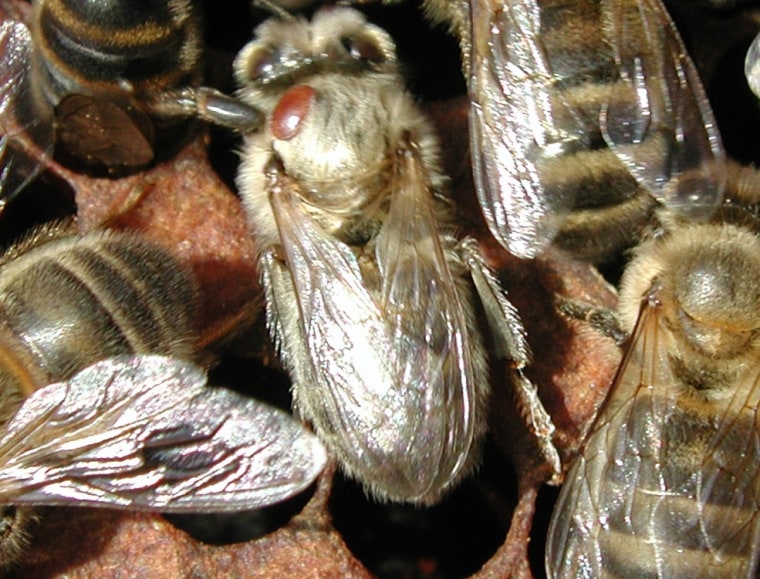Honeybees that are infected by known parasites appear to leave their nests voluntarily — usually never to return — for the greater good of the hive, according to a new study.
A U.S. government report released earlier this year on the mysterious disappearance of honeybees points to the parasitic mite Varroa destructor as the biggest factor behind the die-off, while downplaying the role of controversial pesticides.
The new research from the French National Institute for Agricultural Research digs into the question of how the mite and another parasitic fungus called Nosema ceranae impact the body, brains and behavior of the infected bees and whether there are any common threads to their impact.
The team found the parasites cause chemical changes in the brain and skin of infected bees, but that their hive mates were not aggressive toward them.
"That these parasitized bees are not attacked by their nestmates suggests that they leave the hive voluntarily, perhaps propelled by gene expression changes in the brain, showing altruistic behavior," the team writes in a paper published Wednesday in the journal BMC Ecology.
Such altruistic behavior of the social insects, the researchers add, was predicted in earlier work by Olav Rueppell, a biologist and bee expert at the University of North Carolina, Greensboro, as a way to prevent the spread of infection in the hive.
In that work, Rueppell and colleagues didn't use parasites, but made the insects feel sick with techniques such as elevated carbon dioxide levels. "The bees would just leave the colony and we took this as evidence that if the bees feel really sick they should leave the colonies because they don't want to spread the sickness around the hive," he explained to NBC News.
The new study, he added, appears to validate the earlier findings with biological experiments on specific parasites, but cautioned in a comment, also published Wednesday in BMC Ecology, that "this conclusion must remain speculative in light of the small amount of neurogenomic overlap between" between the parasitized bees.
Nor should there be a rush to draw a conclusion that the research fully explains the problem of honeybee decline, he told NBC News.
"I know that everybody would like to have a simple, one-phrase answer, but my personal opinion is there are multiple factors that interact and that bees may be dying of different causes in different places," Rueppell said.
John Roach is a contributing writer for NBC News. To learn more about him, visit his website.
